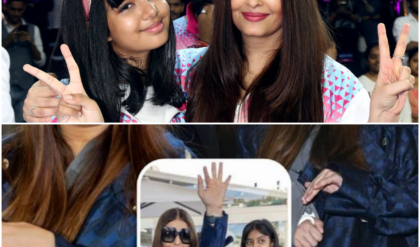Juhi Chawla, a prominent figure in the Indian film industry, has long been celebrated for her charming performances and vibrant on-screen presence. However, in recent years, she has expressed her frustration with the so-called “Khans” of Bollywood, namely Shah Rukh Khan, Salman Khan, and Aamir Khan. These three actors have dominated the industry for decades, and their influence has been vast. Juhi’s discontent appears to stem from a combination of professional rivalry, the changing landscape of Bollywood, and the pressures that come with being a part of a highly competitive industry.
Juhi Chawla and Shah Rukh Khan share a long history, having acted together in several successful films, including “Darr” and “Yes Boss.” Their on-screen chemistry was once celebrated, making them one of the most iconic pairs of the 90s. However, as Shah Rukh’s stardom skyrocketed, Juhi found herself increasingly overshadowed by his larger-than-life persona. This shift in dynamics can be challenging for any actor, especially someone who has experienced significant success. Juhi’s feelings of frustration may stem from a sense of being sidelined in an industry that often prioritizes the Khans, leaving little room for actors like her to shine.
In addition to her professional experiences, Juhi’s comments reflect a broader sentiment within Bollywood regarding the monopolistic hold that the Khans have on the industry. The three Khans have carved out significant territories in terms of box office power and fan following, often leaving little room for others to succeed. Juhi’s frustration may be a manifestation of the challenges faced by many actors who feel that their talent and hard work are overlooked in favor of the same few leading men. This situation can lead to a sense of helplessness among actors who have dedicated their lives to their craft but feel stifled by the prevailing dynamics of the industry.
Juhi’s concerns are not limited to her own career trajectory; they also touch on the changing landscape of Bollywood. The rise of new talents, regional cinema, and digital platforms has altered the way films are made and marketed. As audiences become more discerning, the formulaic approach of the Khans, who have traditionally relied on their star power, may not hold the same sway it once did. Juhi’s comments may reflect her desire for a more inclusive industry, where diverse voices and talents are given the opportunity to thrive. She might be advocating for a shift away from the traditional star system that has dominated Bollywood for so long.
Moreover, Juhi has also been vocal about her concerns regarding the pressures and expectations placed on women in the industry. As an actress who has navigated the challenges of aging in a profession that often prioritizes youth and beauty, Juhi has spoken out about the need for more substantial roles for women. Her frustrations with the Khans may also be tied to the portrayal of women in films where male actors often dominate the narrative. Juhi’s advocacy for better representation and more complex roles for women highlights her commitment to changing the status quo, which she believes is perpetuated by the ongoing dominance of male actors.
The Khans, with their massive fan bases and influence, have a significant impact on the industry’s trajectory. This influence can lead to a lack of opportunities for other actors, particularly women. Juhi’s concerns may resonate with many in the industry who feel that the dominance of a few has created an uneven playing field. As the industry evolves, there is a growing demand for stories that reflect the diversity of the audience, and Juhi’s frustration may stem from the belief that the Khans do not adequately represent this shift.
In recent interviews, Juhi has expressed her desire for Bollywood to embrace a more collaborative spirit, where actors support one another rather than compete for the same roles and accolades. This sentiment reflects a growing awareness within the industry of the need for unity and cooperation, especially in an era where audiences have access to an array of global content. Juhi’s call for solidarity among actors, regardless of their star status, is a reminder that the film industry thrives on collaboration and creativity, rather than rivalry.
Another layer of Juhi Chawla’s frustration with the Khans may be related to the changing audience expectations. Today’s viewers seek authenticity and relatability in their films, often gravitating toward narratives that explore real-life issues and diverse experiences. While the Khans have produced blockbuster hits, there is a growing sentiment that their films do not always align with the evolving tastes of contemporary audiences. Juhi may be advocating for a shift towards storytelling that resonates with viewers on a deeper level, rather than relying solely on the allure of star power.
Social media has also played a crucial role in amplifying the voices of actors and fans alike. Juhi’s candid comments about the Khans may have been influenced by the direct feedback she receives from her audience. The digital age has given rise to a more participatory culture, where actors can engage with their fans and share their perspectives more openly. Juhi’s willingness to express her frustrations publicly reflects a broader trend among actors who are
Watch video:
News
प्राकृतिक उर्वरकों से खीरे की उपज दोगुनी करें: एक माली गाइड
बागवानी के शौकीनों और खीरे के प्रेमियों के लिए, अपने बगीचे से ताज़े, कुरकुरे खीरे की भरपूर फसल लेने जैसा कुछ नहीं है। लेकिन क्या आप जानते हैं कि आप प्राकृतिक उर्वरकों की मदद से अपने खीरे की उपज को…
आलू की फसल को बेहतर बनाना: रोपण से पहले आलू काटने की कला
आलू, जो दुनिया भर में कई आहारों में मुख्य है, थोड़ी सी जानकारी और तैयारी के साथ आपके पिछवाड़े में उगाया जा सकता है। इस प्रक्रिया में एक महत्वपूर्ण कदम रोपण से पहले आलू को काटना है। यह तकनीक, जिसे…
अधिकांश लोग अंडे के छिलके फेंक देते हैं, लेकिन वे नहीं जानते कि वे कितने महत्वपूर्ण हैं!
अंडे के छिलके एक आम घरेलू अपशिष्ट उत्पाद हैं, जिन्हें अक्सर बिना सोचे-समझे फेंक दिया जाता है। हालाँकि, जब बागवानी और पौधों की खेती की बात आती है, तो ये दिखने में महत्वहीन अंडे के छिलके अविश्वसनीय क्षमता रखते हैं।…
The Great Indian Kapil Show Season 2 Full Episode 6 Explanation | Kajol, Kriti Sanon, Shaheer
The Great Indian Kapil Show has returned with its highly anticipated Season 2, captivating audiences once again with its unique blend of comedy, celebrity interviews, and engaging skits. Episode 6 of this season featured special guests Kajol, Kriti Sanon, and…
Sonakshi Sinha gained a lot of weight for New Project in Recent Appearance at Taurani Diwali party
Sonakshi Sinha, the talented actress known for her impressive performances in Bollywood, has recently made headlines for her significant weight gain, which she attributes to her preparation for an upcoming project. Her latest appearance at the Taurani Diwali party has…
Sohail Khan’s shocking reaction on Aishwarya amid divorce rumours with Abhishek Bachchan goes viral
The Bollywood film industry is no stranger to drama, both on-screen and off. Recently, the media has been abuzz with rumors regarding Aishwarya Rai Bachchan and Abhishek Bachchan’s marriage, with speculation about a potential divorce capturing the attention of fans…
End of content
No more pages to load











